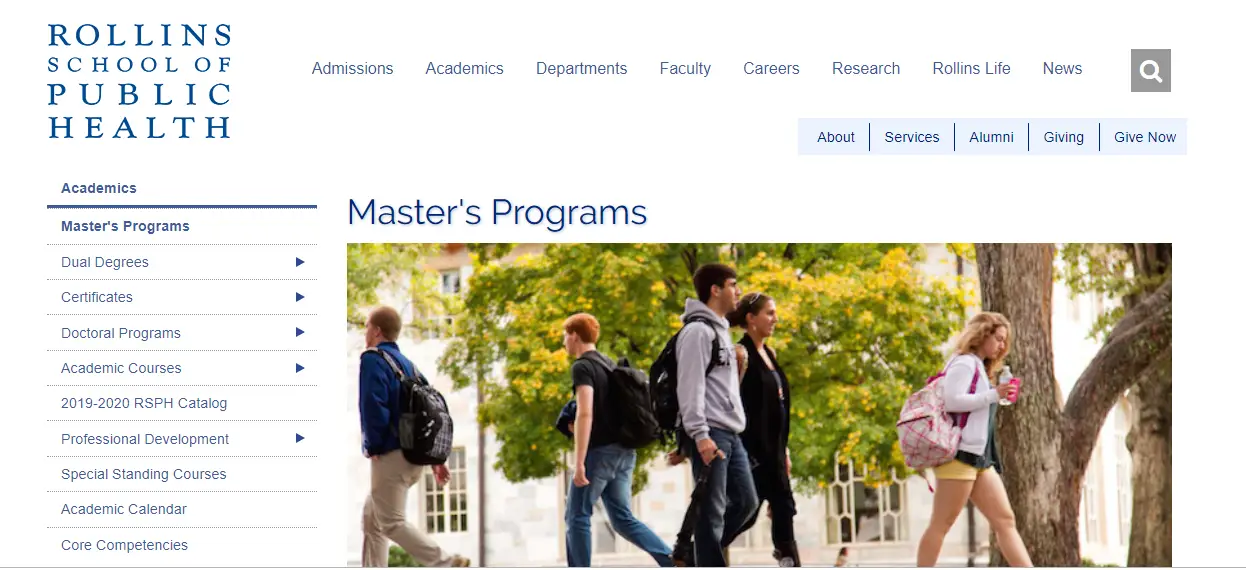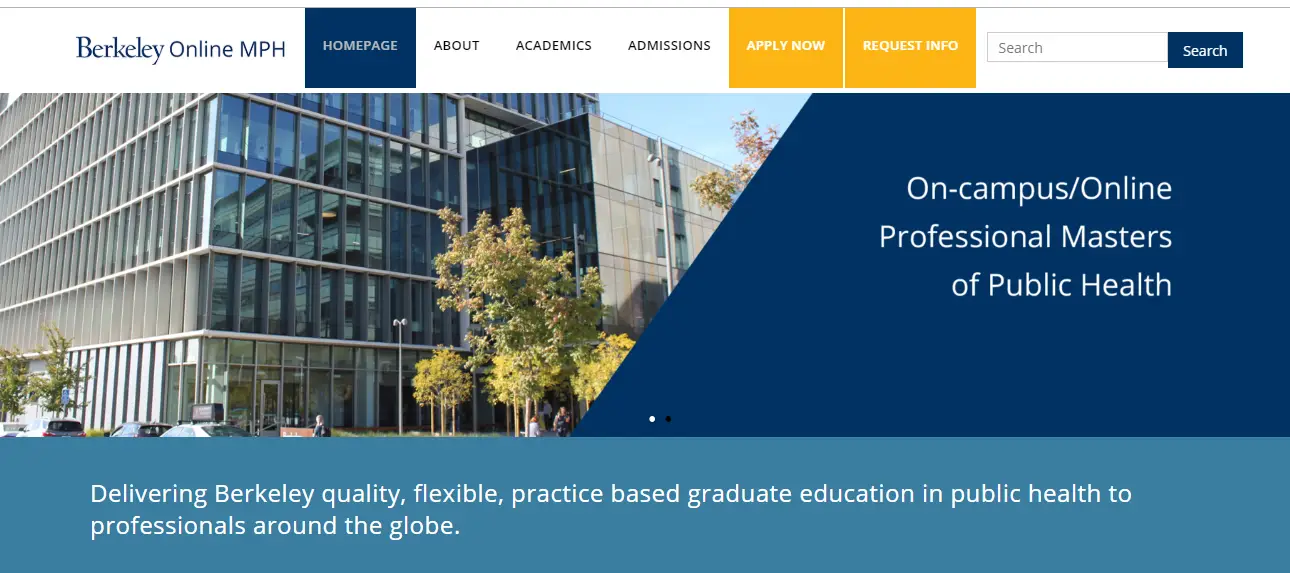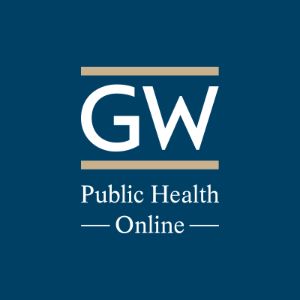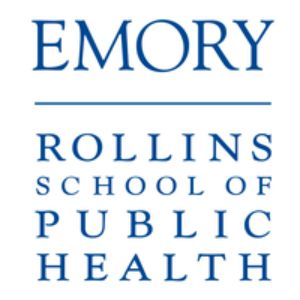Choosing to undertake a master’s in public health can give you the chance to follow a wide range of exciting, rewarding, and meaningful career paths. Whether you ultimately use your degree to work in public health as a teacher, researcher, consultant, dietitian or nutritionist, epidemiologist, nurse, bio-statistician, or healthcare administrator, with an MA in public health you will have the opportunity to embark on a fulfilling career and make a genuine difference in the world. To help you choose the best school and program for your professional and academic aspirations, below we offer you our selection of the top Master’s in Public Health programs available.
We reviewed dozens of Master’s in Public Health programs to identify the very best of the best. We based our assessment on a range of factors, including cost, location, concentration, career prospects, course accreditation, and student reviews.
This college is one of the most prestigious in the US and its Master’s in Public Health program is currently Ranked #1 by U.S. News & World Report.
Check PriceHaving considered a large number of Master’s in Public Health programs, we chose John Hopkins University’s Master’s in Public Health as our top pick. This program offers students a broad comprehensive core and twelve specialization options that allow students to tailor their learning experience to their specific career aspirations. It also has CEPH accreditation and is widely recognized by employers as a program of exacting and rigorous academic standards.
In This Article
The 5 Top-Rated Master’s in Public Health Programs
| Editor's Picks | College | Rating |
|---|---|---|
| Best Overall | John Hopkins University | 4.8 |
| Runner Up | Harvard University | 4.6 |
| Best Value | Emory University | 4.4 |
| Best Online Master's in Public Health | University of California Berkeley | 4.0 |
| Best for Athletes | University of North Carolina Chapel Hill | 4.6 |
*Ratings are from U.S. News at the time of publication and can change.
Our Top Pick: John Hopkins University
Johns Hopkins Bloomberg School of Public Health offers full-time, part-time, online, and dual-degree Master’s of Public Health programs. The full-time program takes a total of eleven months of intensive study, while online or part-time formats can take 2-3 years, depending on the course load each academic term. Both options consist of 80 credits.
With regard to curriculum, JHU’s program consists of a comprehensive core that makes up 50% of course credits before students then progress to elective concentration subjects, practicum experience of at least 100 hours, and finally a capstone project comprising a 20-page written component and 10-minute oral presentation.
Course concentrations include:
Aging and Public Health
Child and Adolescent Health
Epidemiological and Biostatistical Methods for Public Health and Clinical Research
Food, Nutrition and Health
Food Systems
Global Environmental Sustainability and Health
Humanitarian Health
Health Leadership and Management
Health Systems and Policy
Infectious Diseases
Social and Behavioral Sciences in Public Health
Women’s and Reproductive Health
John Hopkins MA in Public Health Key Features:
- Located in Baltimore, MD
- Tuition fees $1, 290 per credit
- 12 course concentrations
- Program ranked #1 by U.S. News & World Report
Our Runner Up Pick: Harvard University
Harvard University’s T.H. Chan School of Public Health offers a wide array of Master of Public Health degrees and among the best career prospects of any public health program the world over.
Check PriceHarvard University is almost universally acknowledged as one of the leading academic institutions in the world, and its Master of Public Health degrees from the T.H. Chan School of Public Health carry on a long tradition of academic excellence.
This program excels first and foremost in its variety, with flexible degree formats and an extensive array of options for specific fields of study providing the perfect blend of grounding in the core disciplines of public health and a specialized focus that allows you to match your career aspirations with specific areas of study.
The T.H. Chan School offers Dual/Joint Degrees, a Summer-Only MPH, a 45-credit, part-time, 2-year MPH, and a 65-credit MPH, all with various options for specialization. Admission for the 65-credit MPH degree requires a bachelor’s degree, two years of work experience in a relevant field, and an suitable GRE score.
The 45-credit MPH program, available to those with a prior doctoral degree, a degree in health-related field, or a bachelor’s degree and 5 years’ relevant experience, offers the following concentrations: Clinical Effectiveness, Epidemiology, Global Health, Health and Social Behavior, Health Management, Health Policy, Occupational and Environmental Health, and Quantitative Methods.
The 65-credit MPH program offers the following concentrations: Health Management, Health Policy, Nutrition, and Health and Social Behaviour.
Harvard University MA in Public Health Key Features:
- Located in Cambridge, MA
- Online, part-time, and full-time programs available
- Tuition fees $1,383 per credit
- Concentrations include Health Management, Global Health, Quantitative Methods, Epidemiology, and more
Our Value Pick: Emory University
Emory’s Rollins School of Public Health offers a full range of MPH programs with significantly lower tuition fees than other top-ten rated institutions.
Check PriceEmory University’s Rollins School of Public Health MA program in public health currently ranks #5 of all master’s in public health in the US, which makes its low tuition costs all the more remarkable.
Students can choose from a wide variety of study areas and the admission and course requirements for each concentration vary. Most courses consist of 42 credit hours that include a thesis and applied experience and are offered as a dual degree and in part-time format. Public health graduate students must also complete a 200-400 hour practicum, capstone project, or a specialty project monitored by a preceptor.
Rollins offers opportunities for earning an MPH within two years or less (depending on the department) in the following areas: Behavioral Sciences and Health Education, Biostatistics, Environmental Health, Global Environmental Health, Epidemiology, Global Epidemiology, Health Policy, Health Care Management, and Global Health.
Emory University MA in Public Health Key Features:
- Located in Atlanta, GA
- Total program cost (3 semesters) $69,600
- 200-400 hour practicum
- Multiple concentration areas, including health policy, global health, environmental health, and global epidemiology
Best Online Master’s in Public Health Program: University of California Berkeley
A very affordable but rigorous program that offers multiple areas of concentration and flexibility for working professionals and those with families.
Check PriceU.S. News & World Report ranks UC Berkeley in the top 25 of the nation’s “Best National Universities” and the UC Berkeley School of Public Health among the top 10 in the nation’s “Best Graduate Public Health Schools.”
The online MPH program at University of California Berkeley takes 27 months to complete and was specifically designed with working professionals in mind. Although most of the coursework is completed online, students must visit campus twice during the program—something worth bearing in mind when calculating overall course costs.
The program consists of a comprehensive core in which students gain a thorough grounding in subjects like biostatistics, epidemiology, environmental health, social and behavioral science, and health services management. Concentrations include Health Policy & Management, Community Health Sciences, Epidemiology and Biostatistics, Spatial Data Science and Global Health.
University of California Berkeley MA in Public Health Key Features:
- Net price $17,160
- Accredited by the Council on Education for Public Health (CEPH)
- Accredited by the Western Association of Schools and Colleges (WASC)
- 27-month duration
- Designed for working professionals
- Concentrations include Health Policy & Management, Community Health Sciences, Epidemiology and Biostatistics, Spatial Data Science, and Global Health
Best Master’s in Public Health Administration Program: University of North Carolina at Chapel Hill
This program is tailored to produce worldwide healthcare leaders with the ability and knowledge needed to develop, manage and lead effective, equitable, and responsive healthcare systems.
Check PriceThis MA in Public Health Administration from the Gillings School of Global Public Health at the University of North Carolina Chapel Hill is ranked No.3 for health care management programs by U.S. News and World Report and is offered in both full-time residential and executive formats.
UNC states that the mission of the Master of Healthcare Administration (MHA) program at UNC “is to improve decision-making and leadership skills of early and midcareer professionals who aspire to manage and lead the delivery of healthcare in North Carolina, in the United States, and globally.”
The curriculum is designed to ensure that students attain a set of core competencies that enable them to successfully perform in a variety of professional settings, demonstrating proficiency in the core competencies at graduation and mastery after several years of experience. The school’s unique Competency Model for the MHA program comprises five domains—Communication and Relationship Management, Leadership & Professionalism, Knowledge of the Healthcare Environment, Management, and Finance & Analytics –and 26 competencies identified as relevant for graduates in health policy and management.
NCU Chapel Hill Master’s in Publich Health Administration Key Features:
- Located in Chapel Hill, NC
- Accredited by both CEPH and CAHME (Commission on Accreditation of Healthcare Management Education)
- 60 total credits required for graduation
- Cost per credit $1,900
Who Should Study for an MA in Public Health
There are many reasons why people choose to pursue an MA in Public Health. Below, we have listed the most common.
To help others. One of the most rewarding aspects of a career in public health is the knowledge that what you do on a day-to-day basis makes a difference in the lives of others, whether it be through you involvement in local communities, educating the public in health awareness, creating initiatives that may be implemented state or nationwide, analyzing data to improve local, national, or global health care, or more directly through a careers like nursing or counseling.
Job security. Pubic health is one of the steadiest growing fields of employment in the US and the need for workers in the sector is only expected to grow in coming years. The Bureau of Labor Statistics expects the following percentages of growth in common fields of employment in public health by 2022:
- Community Health Workers – 25.1%
- Epidemiologists – 10.2%
- Environmental Scientists and Specialists – 14.6%
- Health Educators – 19%
- Health Specialties Teachers – 36.1%
- Healthcare Social Workers – 26.8%
- Medical and Health Services Managers – 23.2%
- Mental Health and Substance Abuse Social Workers – 22.8%
- Mental Health Counselors – 28.5%
- Natural Sciences Managers – 5.7%
Career variety. The variety of professions in the field of public health is simply vast, as are the number of opportunities for upward or lateral progression within the sector. In addition to each of the career paths listed above, graduates in public health can work in a variety of roles in nonprofits, schools, government, private companies, international companies, and local organizations.
Problem solving. One of the functions common to many positions in public health is that of finding solutions to local, national, or even global health issues. This may mean identifying and assessing risks to public health and implementing a plan to resolve the problem, developing prevention programs for disease and illness, and/or analyzing statistical data to gauge underlying causes of community health problems.
If you’re moving to a college town, then you won’t want to miss Life At College: 5 Keys To Finding Your Perfect College Town Apartment.
This college is one of the most prestigious in the US and its Master’s in Public Health program is currently Ranked #1 by U.S. News & World Report.
Check PriceImportant Factors to Consider
- Cost. Studying towards an MA in Public Health entails not only a big commitment in terms of time, but also financially. As with all other college programs, the cost of a Master’s in Public Health can vary greatly from one school to another, as can the type and amount of financial aid available to prospective students. Before you start your search, it’s wise to define your parameters as regards overall course costs and use these as a means of narrowing down the feasible options.
- Location. Where you chose to do your MA in Public Health can have a significant impact upon both your enjoyment of the course and your ability to complete is successfully. Students who choose an institution to which they can commute from home or who chose to study online, naturally, can save a lot of money on accommodation costs and, as such, relieve some of the stress caused by shouldering a large financial burden. This, however, should be weighed up against other factors such as the institution’s accreditation, the cost of fees and tuition, and the type of programs on offer.
- Program Delivery: Online vs. On-Campus. While on-campus learning can provide a more hands-on experience and allow students to become more involved in student life, there are plenty of reasons why studying for an MA in Public Health online is an attractive option. Firstly, online programs give students a wider range of options and allow you to ‘attend’ some of the world’s best universities without relocating. Studying towards your MPH online makes it feasible to attain your degree from a specific institution that, owing to high living costs, might have been outwith your budget otherwise. Secondly, many students choose to pursue their MA in Public Health online because the flexible format lets them work and stay with their family while attending school. Finally, distance learning programs are typically less expensive than on-campus programs. Again, this can open up a lot more possibilities as regards your choice of institution and the quality of the program you ultimately choose to undertake.
- Accreditation. Before deciding on any course, it is vital that you make sure it is fully accredited. Accreditation demonstrates that a school or program has the academic rigor and standards required to train future professionals and provide high-quality education that transfers to other universities and will be recognized by future employers. The principal accreditation body in public health in the US is the Council on Education in Public Health (CEPH), an independent accreditation agency recognized by the Department of Education. If any program has been accredited by CEPH, this tells you that it has passed rigorous quality standards and the degree conferred by the institution will be viewed recognized by potential employers. CEPH provides a database of accredited programs on its website.
- Specialization and career goals. Public health is a large area of study with several distinct specialties or concentrations. Before choosing any college, you should ensure your chosen program offers your desired specialization subject. Below, we’ve listed some of the most common public health concentrations.
-
- Biostatistics and Information
- Communications
- Community Health
- Epidemiology
- Environmental Health
- Global Health
- Healthcare Administration
- Maternal and Child Health
- Occupational Health and Safety
- Population Health Analytics
- Public Health Education
Frequently Asked Questions
What can you do with a Master’s in Public Health degree?
With an MPH there are a several career paths you can pursue. The most common involve work with hospitals and other health facilities that deal with illnesses, wellness, nutrition, and health consciousness in general. That said, the field intersects with a number of others, including business, law, pharmaceuticals, and science, thereby granting public health graduates greater flexibility and opportunities outwith traditional healthcare institutions.
Below, we’ve listed a selection of the potential careers Master of Public Health graduates could follow:
- Some of the careers you could potentially embark on with an MA in Public Health include:
- Healthcare Administrator
- Registered Nurse
- Epidemiologist
- Social and Community Service Manager
- Dietitian and/or Nutritionist
- Substance Abuse, Behavioral Disorder, and Mental Health Counselor
- Medical Record and Health Information Technician
How much does it cost to get a Master’s in public health?
A master’s degree in Public Health usually costs costs $16,000-$33,000 for in-state tuition and fees or $25,000-$60,000 for out-of-state tuition and fees. This cost represents tuition and fees for a full-time, two-year graduate program, which is most common course duration.
How long does it take to get a Master’s degree in public health?
A 43-credit-hour MPH degree program that will typically take two to two and a half years to complete. Part-time students, however, may take up to five years to finish their degree. Accelerated programs may be completed in 11 to 16 months, though it should be noted that these programs typically require highly intensive study and are not suitable for those in either full- or part-time employment.
How much do public health majors make?
Average earnings for Public Health majors vary greatly depending on what career path and position taken after graduation. According to the Bureau of Labor Statistics, the average annual salary for MPH graduates in popular lines of work are as follows:
- Health and Safety Engineer – $86,720 per year (average)
- Healthcare Administrators – $96,540 per year
- Epidemiologists – $74,120
- Community Health Workers – $38,180
- Health Educators – $55,260
- Mental Health Counselors – $43,990
- Environmental Scientists and Specialists – $72,050
- Medical and Health Services Managers – $103, 680
- Mental Health and Substance Abuse Social Workers – $45,820
Other Master’s Programs in Public Health We Reviewed
This college is one of the most prestigious in the US and its Master’s in Public Health program is currently Ranked #1 by U.S. News & World Report.
Check PriceWe looked at 20 other Master’s programs in Public Health. Even though they didn’t make our 5 best Master’s in Public Health list, they’re the best of the rest and each is still a great option. The information you’ll need to compare each one is included with the listing.
- Value Master’s in Public Health Program
- Online Master’s in Public Health Program
- Master’s in Public Health Administration Program
Value Master’s in Public Health Program
University of California, Berkeley School of Public Health
The Berkeley School of Public Health offers full-time, part-time, and dual degrees with a MBA-MPH combination, and a choice of 11 concentrations, including Environmental Health Studies, Health and Social Behavior, and Health Policy and Management.
Key Features:
- Located in Berkeley, CA
- Accredited by CEPH
- 11 concentration areas
Cost: $1,056 per credit hour
The USF College of Public Health offers a wide variety of of Master of Public Health options, with more than 20 concentrations available.
Key Features:
- Accredited by CEPH
- High acceptance rates
- 42-credits program includes a field experience, special project and comprehensive exam
- Over 20 concentrations
Cost: $877 per credit hour
University of Nebraska Medical Center
This Master of Public Health program has a 45-credit, values-based curriculum with a whopping 360 practicum hours, thereby providing one of the most hands-on, practice-centered programs nationwide.
Key Features:
- Located in Omaha, NE
- Accredited by CEPH
- Concentrations: Biostatistics, Emergency Preparedness, Environmental and Occupational Health, Epidemiology, Health Promotion, or Health Administration and Policy, Community-Oriented Primary Care, and Maternal and Child Health
Cost: $951.00 per credit hour
University of California Los Angeles
This highly competitive two-year program involves coursework in foundational knowledge of the health sector, management and policy, and leadership skills, and includes a mandatory capstone field experience of a full-time, 10-week summer internship followed by a final report and presentation.
Key Features:
- Located in Los Angeles, CA
- 2-year program
- Offers five concentrations: Biostatistics, Community Health Sciences, Epidemiology, Environmental Health Sciences, Health Policy and Management
Cost: $17,352 + $7,200 Professional Fees (In-state students); $29,597 + $7,656 Professional Fees (Out-state students)
University of North Carolina – Charlotte
The College of Health & Human Services at the University of North Carolina-Charlotte is ranked #2 by the U.S. News & World Report nationwide for nurturing “Healthy People, Healthy Places.” The school’s 45-credit Master of Public Health (MPH) offers a very affordable program with concentrations in Community Health Practice, Epidemiology, and Population Health Analytics.
Key Features:
- Accredited by the Council of Education for Public Health (CEPH)
- Total cost with in-state tuition is approximately $18,500
- Small class size – generally 15-30 students
- Within 1 year of graduation, over 80% of alumni find work in the public health field
- 50% of our full-time students receive some form of assistantship or other financial assistance
Cost: $18,500 total cost (In-state students)
University of Texas at El-Paso

This Hispanic-serving school ranked #1 for social mobility by the Brookings Institution. The 42-credit MPH program boasts a 5:1 student-faculty ratio for generalist courses and includes 240 practicum hours and a capstone research project.
Key Features:
- Accredited by CEPH
- Specializes in preparing practitioners in Hispanic and Mexican border communities
- 240 practicum hours
- Core competencies: social and behavioral sciences, health services administration and policy, epidemiology, environmental health and biostatistics
Cost: $540 per credit hour
Texas A&M Health Sciences Center: Bryan, TX
The Texas A&M Health Sciences Center is ranked 73rd for medical research by the U.S. News & World Report. Its Master of Public Health (MPH) is a 45-credit, CEPH-accredited curriculum with modules in Epidemiology, Biostatistics, Environmental Health, Health Policy and Management, Community Health Sciences, or Occupational Health and Safety.
Key Features:
- Located in Bryan, TX
- CEPH-accredited
- 45-credit program
- Concentrations include Epidemiology, Environmental Health, Occupational Safety and Health, and Health Policy and Management
Cost: $ 4,200/year (full-time, in-state); $11,845/year (full-time, out-of-state)
Online Master’s in Public Health Program
George Washington University’s Milken Institute School of Public Health ranked No. 12 on U.S. News & World Report’s 2019 list of best public health graduate schools. This online MPH program offers several options to accommodate your individual needs, allows you to connect with GW faculty in live, virtual classes, and gives you access to a wide range of dedicated support services, including personalized assistance throughout the application process.
Key Features:
- CEPH accredited
- GW offers an intensive 18-month, online MPH program option that requires an average of 7.5 credits per quarter
- Customizable programs
Cost: $1,765 per credit hour
ATSU’s School of Health Management (SHM) offers a 60-credit-hour, 15-course program culminating in a Master of Public Health (M.P.H.) degree. The academic plan allows students to complete the program in as little as 18 months and up to 42 months.
Key Features:
- Accredited by CEPH
- Four areas of concentration: Oral Public Health, Health Policy and Administration, Health Planning, Environmental Health
- MPH with Dental Emphasis is also offered
Cost: $638 per credit hour
Florida International University
This program gives you the option of taking all your classes online or taking some on campus and the rest from a distance, thereby providing the optimal blend of flexibility and face-to-face support. The program’s strategic balance between coursework, lab research and practice delivers the perfect combination of competencies.
Key Features:
- Accredited by CEPH
- 45-credit course
- Core courses include Health Statistics, Health Behavior and Public Health, Health Policy and Management, Research Methods in Public Health
- Faculty are locally accessible if students need to meet them in person for guidance
Cost: $600 per credit hour
New Mexico State University is one of few universities with an accredited MPH that offers their entire program in an on-line format. With this very affordable program, students can concentrate in either Community Health Education or Health Management, Administration, and Policy.
Key Features:
- Entire program delivered in on-line format
- CEPH accredited
- Fieldwork requirement must be fulfilled locally
- Degree can be paired with certificate in Gerontology or US-Mexico Border Health
Cost: $399.50 per credit hour
The University of North Dakota’s MPH program has a 100% graduate employment rate in health-related careers and is home to the only online Indigenous Health program in the United States.
Key Features:
- CEPH accredited
- Accelerated MPH available
- 42-credit program
- Asynchronous learning provides more flexibility
- Two areas of concentration offered: Population Health Analytics and Health Management and Policy
Cost: $837 per credit hour
University of Southern California
USC is top ranked by Forbes, U.S. News & World Report, Times Higher Education, and Washington Monthly, and its MPH program offers students the chance to receive the same rigorous academic preparation and degree as students enrolled in the on-campus MPH program.
Key Features:
- Accredited by CEPH
- Content can be accessed 24/7 from anywhere with an internet connection
- Students can engage with classmates and faculty in regular live online sessions
- Five areas of concentration: Biostatistics and Epidemiology, Health Education and Promotion, Global Health Leadership, GeoHealth, Health Services and Policy
Cost: $1,928 per credit hour
The Rollins School of Public Health is one of the most respected public health colleges in the US. Its online MPH degree comprises core competency study in biostatistics, social behavior, and environmental health in addition to a practicum requirement of 200-400 hours.
Key Features:
- Accredited by CEPH
- Classes are all instructor-led, not auto-tutorial or self-study
- Three areas of concentration: Applied Epidemiology, Applied Public Health Informatics, Prevention Science
Master’s in Public Health Administration Program
*Quoted costs are the average net cost for full-time students
This two-year program is designed to prepare individuals for administrative careers in a wide variety of health care settings, including hospitals, management consulting firms, private industry, government agencies, health care delivery systems, and also mental health and social welfare agencies
Key Features:
- Located in Ithaca, NY
- Accredited by CEPH
- Required 10-week, full-time summer internship
- Students complete requirements in health services administration and selected electives in functional areas such as finance, marketing, information systems, and human resource management
Cost: $30,014
Ranked as one of the best healthcare programs in the country, Penn State World Campus’s Master of Health Administration is a competency-based program that equips students with the knowledge and capabilities needed to lead organizations dedicated to improving health and health care in both the private and public sectors.
Key Features:
- Located in Hershey, PA
- Accredited by CEPH
- 49-credit program
- 28-month duration
- Courses include Financing Health Care, Health Services Organizational Behavior, Population Health and Quality Management in Health Services Organizations
Cost: $23,129
This 23-month, part-time, hybrid program offers students the opportunity to undertake their MPH via both traditional, on-campus delivery and online delivery. This course is geared towards students who aspire to enter management roles within the health sector.
Key Features:
- Located in San Antonio, TX
- 42-credit program
- Small class sizes
- Five two-hour teleconferencing sessions per course
- Available courses include Managerial Epidemiology, Performance Improvement in Health Care Organizations, Operations Management, and more
Cost: $28,569
The University of Michigan School of Public Health is currently ranked the fourth best public health school in the US. Its Master’s of Public Health Administration program continues over 80 years of academic excellence with an interdisciplinary approach to the field that analyzes health services via marketing, management, and finance to prepare students for management careers in health systems, hospital, clinic, and emergency services.
Key Features:
- Located in Ann Arbor, MI
- 2-year, 60-credit course
- Mandatory 10-12 week summer internship
- Courses include Healthcare Accounting, Organizational Theory/Management, Political Science, Health Policy, and more
Cost: $16,107
This online MHA degree offers two specializations in order to better prepare students for the ever-changing healthcare industry: an MHA with Health Informatics Specialization and an MHA with Global Health Specialization. Both courses consist of 44 credits plus a three-credit internship of 150 work hours.
Key Features:
- Online delivery
- Accredited by CAHME
- Courses include Hospital Administration, Healthcare IT Management, Healthcare Statistics and Research Methods, and more
Cost: $33,701
This very affordable program is designed for students with minimal health care management experience who want to pursue management and leadership positions in health care settings. It integrates more universal business principles with a deep understanding of health care delivery and complex health care organizations.
Key Features:
- Located in Minneapolis, MN
- 21-months, 60-credit program
- Courses include Statistics for Health Management Decision Making, Human Care Human Resource Management, Innovation of Healthcare Services, and more
- 100 percent of graduating students secure fellowships or employment by July of their graduating year
- Program consistently ranks among the top two health care management programs in the nation
Cost: $16,242


































